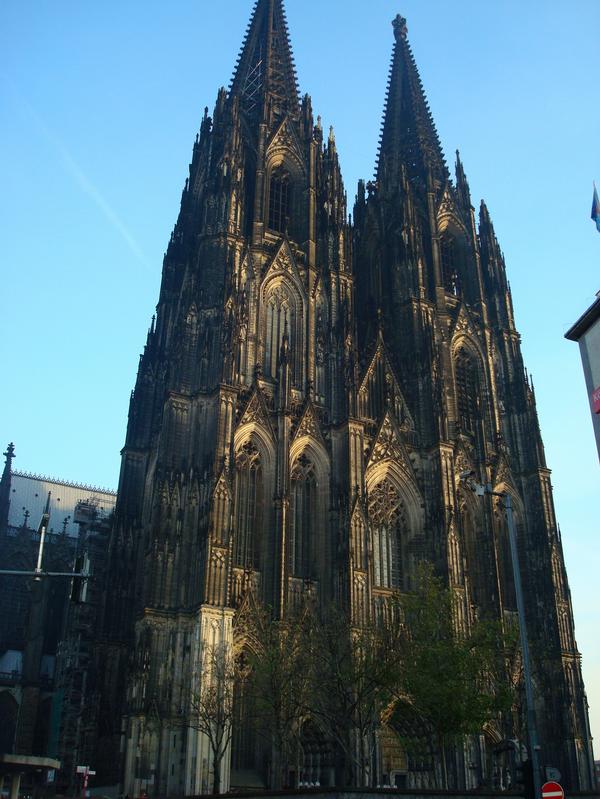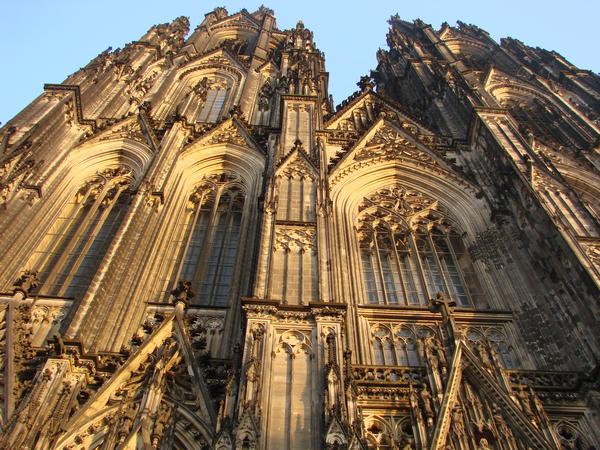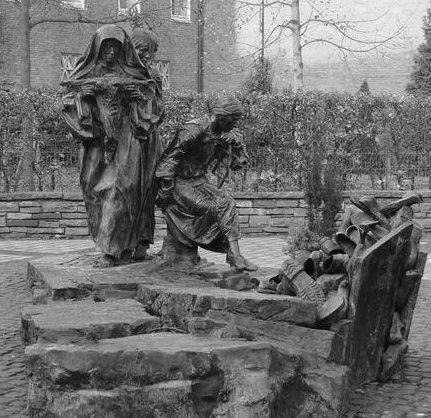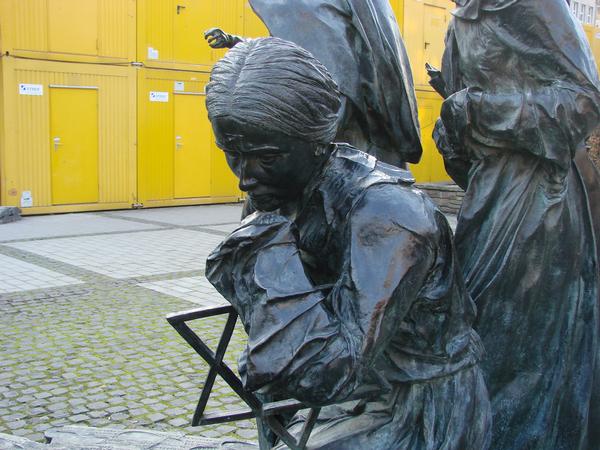Cologne Cathedral (German: Kölner Dom, officially Hohe Domkirche St. Peter und Maria) is the seat of the Archbishop of Cologne, under the administration of the Roman Catholic Church and is renowned as a monument of Christianity, of Gothic architecture and of the faith and perseverance of the people of the city in which it stands. It is dedicated to Saint Peter and the Blessed Virgin Mary.
The cathedral is a World Heritage Site, being one of the best-known architectural monuments in Germany, and Cologne's most famous landmark, described by UNESCO as an "exceptional work of human creative genius".[1] Cologne Cathedral is one of the world's largest churches, being the largest Gothic church in Northern Europe. For four years, 1880-84, it was the tallest structure in the world, until the completion of the Washington Monument followed by the Eiffel Tower. It has the second-tallest church spires, only surpassed by the single spire of Ulm Cathedral, completed ten years later in 1890. Because of its enormous twin spires, it also presents the largest façade of any church in the world.
The choir of Cologne Cathedral, measured between the piers, also holds the distinction of having the largest height to width ratio of any Medieval church, 3.6:1, exceeding even Beauvais Cathedral which has a slightly higher vault. [2]
Construction of the Gothic church began in 1248 and took, with interruptions, until 1880 to complete – a period of over six hundred years. It is 144.5 metres long, 86.5 m wide and its two towers are 157 m tall. [3]
Cologne Cathedral, despite having been left incomplete during the medieval period, eventually became unified as "a masterpiece of exceptional intrinsic value" and "a powerful testimony to the strength and persistence of Christian belief in medieval and modern Europe",[1] as was befitting a worship-place of the Holy Roman Emperor and the traditional shrine of the Three Kings.
 |
 |
 |  |